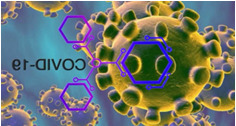„Vor meiner XT-17 tauchte am Horizont das Gebirge von Amin auf. Dort in einem Tal lag mein Ziel, das Hauptquartier der Terroristen. Blitze zuckten stumm in den Wolken, die sich über der Bergkette auftürmte, als wollten sie nach den Sternen greifen.“ („Der Drohnenpilot“ von Thorsten Nesch)
Gewährleistet Digitalmonitoring umfassenden Schutz und Sicherheit oder bedeutet eher totale Überwachung und Kontrolle? Können wir uns in einer Welt voller Drohnen, Kameras, GPS-Systeme und überwachender Computerprogramme verstecken?
Bożena Cudak - 05.01.2021 @ 11:45
„Before my XT-17 the mountain range of Amin appeared on the horizon. There in a valley lay my destination, the headquarters of the terrorists. Lightning flashed silently in the clouds that piled up above the mountain range as if they wanted to reach for the stars.“ (The Drone pilot, Thorsten Nesch)
Does digital monitoring ensure comprehensive protection and security, or does it mean total surveillance and control? Can we hide in a world full of drones, cameras, GPS systems and surveillance computer programs?
MAGDALENA NORTON - 11.01.2021 @ 09:51
Das sind die Artikel von WEDA_Schule, Sofia
These are the articles from WEDA_School, Sofia
Anna Arsenieva - 04.03.2021 @ 11:51
Grenzen des Fortschritts
von Elena Nikolova, Elizabeth Milkova und PreslavVelikov, WEDA-Schule, Sofia/Bulgarien
Ich denke, wir haben uns nicht genug entwickelt, ganz im Gegenteil, wir haben noch viel zu erreichen, denndie Entwicklung hat keine Grenzen. Ich glaube, unsere Zukunft ist nicht schlecht und wir gehen nicht in die falsche Richtung. Wir leben in Zeiten der Technologien, unsere Telefone und Computer begleiten uns immer und wir lernen sogar Online. Über soziale Medien überwachen Länder wie China und die USA nicht nur Ihre Bewohner, sondern auch alle auf der ganzen Welt. Ich meine, dass so verlieren wir ein bisschen von unserer Freiheit, weil wir immer Metadaten geben. Smart Kühlschränke, Uhren, Telefone, Glühbirnen, sie alle übertragen Metadaten. Nur unsere Gedanken können sie noch nicht lesen. Manche Leute aber kümmern sich nicht um Ihre Freiheit und glauben, dass sie nichts zu verstecken haben, obwohl das nicht bedeutet, dass sie in der Zukunft nichts zu verstecken haben werden. Ich glaube, wir sollen unsere Freiheit schützen, weil es unser Recht ist.
Auf der anderen Seite glauben einige Leute, dass die riesige Menge an technologischen Geräten, die wir täglich benutzen, uns daran hindert, uns als menschliche Wesen zu entwickeln. Wir kleben ständig an unseren Computern und scheinen nicht mehr Face-to-Face- zu kommunizieren. Das gilt besonders in der heutigen Zeit, in der wir mit einer weiteren Bedrohung namens Covid 19 konfrontiert sind.
Je mehr wir kommunizieren und miteinander interagieren, desto reicher und vielfältiger ist unsere innere Welt. Unsere Zivilisation muss nicht nur in Bezug auf die Technologie Fortschritte machen, sondern auch in Bezug auf die Psychologie. Wir müssen unsere Persönlichkeiten so gut wie möglichentwickeln und uns zu gutmütigen Menschen entfalten. Menschen, die sich gegenseitig unterstützen und helfen.


Limits of progress
by ElenaNikolova, ElizabethMilkova and PreslavVelikov, WEDA-Schule, Sofia/Bulgaria
I think we haven’t evolved enough. On the contrary, we have a lot more to achieve because development has no limits. I do not foresee a bleak future for our world. We are not going in the wrong direction. We live in an era where technology comes first. We always carry our phones and laptops with us; we even study online. By means of technology, countries, such as China and the USA, monitor not only their residents but also the entire world. In this way, we lose part of our freedom and our privacy is violated. We give metadata. Smart fridges, clocks, phones, light bulbs-all these things transfer metadata. Our thoughts are the only thing media are not able to read. Some people do not take care of their freedom and think they have nothing to hide. However, this might not be true for the future. We have to protect our freedom because it is our birthright.
On the other hand, some people believe that the vast amount of technological devices that we use on a daily basis prevents us from developing as human beings. We are always glued to our computers and do not seem to communicate face-to –face any more. It is especially true nowadays when we are facing yet another threat called Covid 19.
The more we communicate and interact with each other, the richer and more diverse our inner world is. Our civilization has to make progress not only in terms of technology, but also in terms of psychology. We need to develop our personalities to the best of our abilities and evolve into good-natured human beings. Human beings who support and help each other.
Hello!
I’ve just finished reading your article, and I was impressed by this absolutely truthful description of our lives. I’ve reflected a lot about how trapped we are by the technology… I had always thought that thanks to the different devices and GPS I was free to explore the entire world from behind my screen, but I couldn’t be more wrong. I think that the problem you face in you article is one of the worst in this world: man should use technology to pursue useful and ethically correct purposes, but it’s important that this instrument doesn’t become our only purpose. And most of all it’s important to be able to think with our own heads and to understand when it’s time to push the “OFF” button. Also, I’ve really enjoyed reading the last point of this article, because if technologies improve our comforts and communication is faster, human relationships fail when they only exsist in a virtual way.
Agnese Corradini - 15.03.2021 @ 10:26
Hallo,
ich finde euren Artikel spannend und sehr gelungen. Ich bin auch der Meinung, dass in Sachen Technik noch mehr zu erreichen ist. Es gibt zahlreiche Möglichkeiten, die noch offen, aber nicht entdeckt oder voll ausgenutzt werden. Allerdings stellt sich dabei die Frage, wie sich das auf unser Privatleben auswirken könnte. Denn die Überwachung, wie von euch angesprochen, wird immer stärker. Es könnte unvorhergesehene Folgen haben, wenn unser ganzes Leben nur noch auf Daten und dem Wissen daraus basiert. Jeder könnte alles über jeden herausfinden, sogar die kleinsten Geheimnisse und kleinen "Macken" könnten unfreiwillig aufgedeckt werden.
Andererseits hat technischer Fortschritt auch ungemeine Vorteile, die beispielsweise wie in dieser Pandemie helfen oder zum Umweltschutz beitragen können. Es ist immer eine Ansichtsache, aber der menschliche Kontakt sollte immer im Vordergrund bleiben. Technik sollte niemals darüber stehen.
Hanna Stemmer - 19.03.2021 @ 10:00
Hello!
Ich finde diesen Artikel interessant. Meiner Meinung nach ist die Technologie sehr hilfreich. Heutzutage können wir fast nichts ohne das Internet machen. Wir können uns mit der Technologie zusammen entwickeln. Wir haben schon z.B. Smart-Kühlschränke und Uhren. Bei sozialen Medien gibt es auch keine Grenzen, man kann unbewusst Informationen über sich selbst teilen, die sehr privat oder wichtig sind. Wie in diesem Artikel geschrieben wurde, können alle auf der ganzen Welt durch soziale Medien überwacht werden. Wenn man über diese Situation nachdenkt, kann man sagen, dass es ganz erschreckend ist. Ich bin damit auch einverstanden, dass wir Fortschritte in anderen Gebieten machen. Wir dürfen aber nie neben der Technologie die Interessen der Menschen vergessen.
Villő Balogh - 27.03.2021 @ 15:32
I very much agree with the authors of this article.They raised a relevant and at the same time extremely dangerous topic - a breach of privacy. Some people can be unaware that thousands of ‘cookies’ track where we go – our phones log data about our movements every 5 seconds, even when they are ostensibly off. An example of the book where digital surveillance is dealt with is George Orwell’s Nineteen Eighty - Four. Despite the fact that the book was published over 70 years ago, it shows the reality of intimidated people who are surrounded everywhere by spy cameras. The story also presents the topic of thoughtcrime which is a crime of thinking against the line propagated.
Fortunately, as the authors of the artycle mention, the media aren't able to read our own thoughts. I think we need to start to take active measures to educate people about taking care of their own privacy. We have to remain emotionally connected to real - life people and keep our critical faculties alive.
Natalia Chwaja - 10.04.2021 @ 10:32
Hallo!
Leider habe ich das Buch „Der Drohnenpilot“ nicht gelesen, aber stimme euren Gedanken zu, dass wir unsere Daten nicht so einfach mitteilen und unbewusst „verkaufen“ sollten. Ohne Zweifel helfen uns die neuen Technologie am Alltag und haben unser Leben einfacher gemacht. Drohen, Kameras, GPS-Systeme und überwachende Computerprogramme werden von uns gerne benutzt. Mit Hilfe von diesen versuchen wir uns den Schutz und die Sicherheit zu gewährleisten. Für mich ist das doch eine der gruseligsten Tatsachen, dass wir fast die ganze Zeit irgendwie überwacht und kontrolliert werden, und unsere Geräte ständig Informationen über uns sammeln. Meiner Meinung nach ist das der eigentliche Zweck der Produzenten von diesen Geräten, weil sie daran noch mehr verdienen können. So haben wir in den letzten Jahren einen großen Teil unserer Privatsphäre verloren. Und das ist mit unserer Zustimmung geschehen. Die Begeisterung von Digitalmonitoring hat unsere Wachsamkeit geblendet und das Abrufen unserer Daten in den Hintergrund gedrängt. Wir sollten doch in diesem Bereich gewisse Mäßigung bewahren und vorsichtig sein, aber es wird leider immer schwieriger, sich vor solcher Überwachung und Kontrolle zu verstecken.
Karolina Pałka - 12.04.2021 @ 17:51
Hello!
Your article aroused great interest in me. I was impressed with how you presented the topic, your work made me reflect. Our lives are filled with technology, especially now that there is a COVID pandemic and we need to learn online, and only phones give us a chance to connect with friends with whom we cannot come into contact face-to-face. As a result, I have the impression that digital devices sometimes know too much about us, more than other people, and sometimes more than we do. However, they are part of the discovery and development process that continues.
After reading the first part of the article, I asked myself if it is possible to say in the future that we have developed enough? That we didn't need to know more? In your work, I found an apt phrase that I can take as the answer to my question, " development has no limits". You also noticed the important fact that most of humanity is focused on discoveries and scientific advances, of course, this is not a bad thing. However, sometimes I have the impression that other spheres are being neglected. New machines and vaccines are being developed and we know more and more about our planet, however, it is rarely mentioned that we should also focus on the psychological sphere and related issues. I also agree that freedom should be protected. I'm afraid we'll lose it completely. So if we don't change for the better, how long will we be free? What if, instead of becoming good-natured beings, we turn into ones who will not know the definition of the words peace, help, support?
Reading your article, I am reminded of the book 1984 by George Orwell. It describes the world of Big Brother, where every little movement is under control, and the main feeling people feel is fear. They also struggle with helplessness and loneliness. ‘Freedom’ or ‘justice’ do not exist. In that world, two plus two does not necessarily equal four, and ‘war is peace, freedom is slavery, and ignorance is strength.’ People are constantly monitored, which is made possible by technology ... I highly recommend this book, I think it could interest you, too.
Julia Garlacz - 15.04.2021 @ 16:33